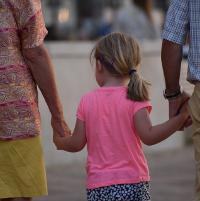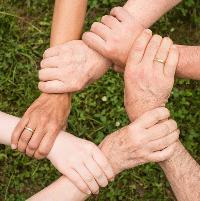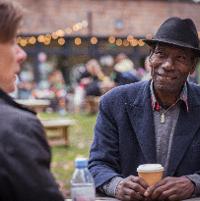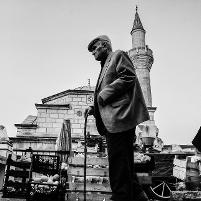Blog
Latest
Intergenerational issues and Germany’s September election
When the pandemic hit Germany in 2020, normal public life ground to a halt. The situation, as Merkel told the German people on 18th March, ‘was serious, and should be taken seriously’. ...
How age-friendly cities are paving the way for the future: the case of Akita City
The convergence of population ageing with urbanisation is one of the major global mega-trends that will shape societies and communities in the 21st century. Thanks to the rapid advance of new techn...
Reimagining public libraries
The term “a third place” was coined 3 decades ago by sociologist Ray Oldenburg to describe somewhere people can go that is neither home nor work, a place to meet people, talk and do thi...
Grandparents’ Day in Brazil
It’s often said that in Brazil we have a holiday for everything. So how we could miss the opportunity to celebrate - in addition to Mother's, Father's or Family Day - Grandparents'...
Five Innovations in Healthy Ageing
It's always a pleasure to attend a conference where you not only learn about cool innovations helping society, but also pick up a few tips for yourself. So it was for me, last week, when I atte...
Impact of COVID-19 on Consumer Behaviour of Older Adults: a consumer revolution or a passing phase?
The pandemic has hit the economies of most countries and many industries hard - especially because consumer behavior has changed drastically. This is especially true for older consumers who have sp...
Hand in hand: an argument for an analytical alliance on young and older people
Would an alliance between academics researching young people and those researching older people be a good thing? I think it would. Gerontology and Youth Studies tend to define their subject m...
Lockdown Baby Boom to Pandemic Baby Bust: Impact of the COVID-19 Pandemic on Fertility
The latest U.S. Census was concluded in 2020 and the first results were released on April 26, 2021. The U.S. is required by the constitution to have a decennial census of population and housing. Th...
ICD-11 and an argument about "old age"
The translation of WHO’s latest revision of the International Classification of Diseases (ICD-11) into Portuguese, published with a declaration that it will be adopted in Brazil from th...
Long-term implications of high-stress occupations in midlife: The role of resilience resources
Although there are many health-related advantages to higher socioeconomic position, the relationship between high job-strain, work-related stress, and psychosocial working conditions in midlife can...
Reconnecting society after the pandemic: a practical proposal
It has been now almost a year and three months since with the first lockdown when most of the western world began a period of social distancing. Despite the new COVID variants, vaccination campaign...
Conditioned thinking as a risk factor in older migrants' health
How does the health of migrants in the UK compare with that of their age peers in their country of origin? Do they enjoy better health in later life? Recent research looking specifically at Turkish...
Redundant After 65: The Hidden Effects of COVID-19 on Intergenerational Solidarity in Turkey
After triggering the biggest global economic turmoil since 2008, COVID-19 has left many people without jobs or a stable income. Precarious jobs were first to disappear, and since older people (65+)...
Sitting down to stereotypes about ageing
Does the design of everyday things inadvertently reinforce stereotypes around ageing? Does the imagery in today media-rich environment put up barriers around older people rather than reducing stigm...
The emerging trends of education technology for lifelong learning
Life-long learning is becoming increasingly important not only for businesses, but also for the wider society, and the quality of life of individuals. Ageing societies need older workers to stay pr...
















